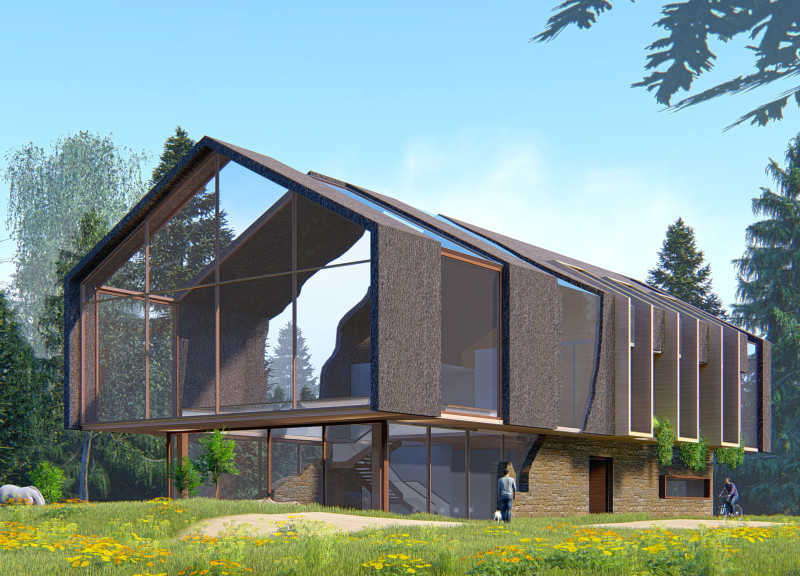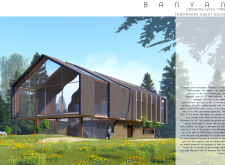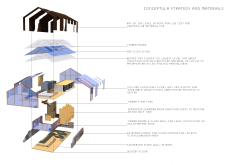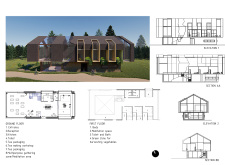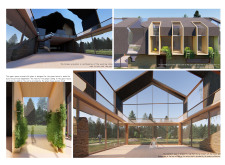5 key facts about this project
The Barn of the Ozolin Tea Maker is located in the Indian sub-continent, creating a blend of culture and modern living. Drawing from the banyan tree, the design concept highlights themes of continuity and connection with the surrounding environment. This building serves multiple functions, promoting a space for both community interaction and individual moments of solitude.
Architectural Concept
The design emphasizes the balance between communal and individual spaces. A large multi-purpose gathering area invites social engagement, providing a setting for various activities. At the same time, a meditation chamber offers a quiet retreat for personal reflection. This design considers the diverse needs of the occupants, allowing for both connection and personal time.
Materiality
A timber frame forms the core structure of the building, offering stability and warmth to the interior. Recycled glass fills inclined walls, allowing natural light to flood the space and promoting ventilation. This focus on sustainability enhances energy efficiency while showcasing a commitment to responsible material use. PET flakes are used for insulation at lower levels, further supporting the aim of reducing waste.
Historical Context
The conserved stone wall ties the new structure back to its historical setting, emphasizing the importance of maintaining heritage. This design choice connects the modern elements with the past, reinforcing the narrative of the site. A wooden floor enhances the barn's natural aesthetic, adding to the overall sensory experience and complementing the surrounding environment.
Sustainability Features
Sustainability plays a key role in the project, particularly on the upper level, where a green zone is designed for vegetable harvesting. This feature encourages self-sufficiency in food production, linking the occupants to their environment. The thoughtful integration of nature into the design highlights a lifestyle that appreciates local produce and community interaction.
The design incorporates large glass elements and thoughtful airflow, creating a welcoming atmosphere that honors the relationship between the past and the present. It presents a balance of historical respect and modern living, ensuring that the barn serves its community while promoting sustainability.


